Benefits of Light Therapy


Vitiligo
You can treat vitiligo with two types of light therapy. One uses a narrow-band ultraviolet B (nbUVB) light. You sit in a light box or booth, or a doctor uses lasers to apply it. The other is called PUVA, which is ultraviolet A (UVA) light from a booth or the sun along with a medication called psoralen. Both light treatments are about 70% effective at bringing color back to skin, but PUVA can raise your odds of skin cancer.
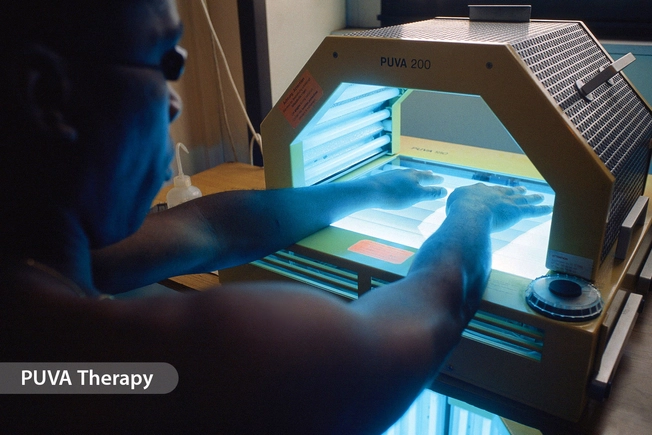
Psoriasis
Light therapy can treat plaque, palmoplantar, nail, and scalp psoriasis. The nbUVB light from a light box, other light source, or a laser helps slow the growth of skin cells, calm an overactive immune system, and ease inflammation and itching. Doctors can also treat psoriasis with PUVA light therapy. You can take psoralen as a pill or soak in it using bathwater before UVA light treatment.
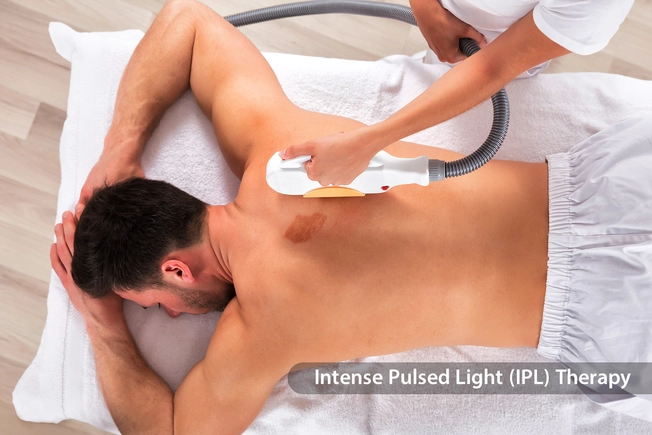
Scleroderma
When hardened skin goes farther down, your doctor may prescribe UVA-1 phototherapy. This kind of light goes deep into skin to loosen scarred areas and reduce itching. A type of light treatment called intense pulsed light (IPL) can help with some dark skin patches.
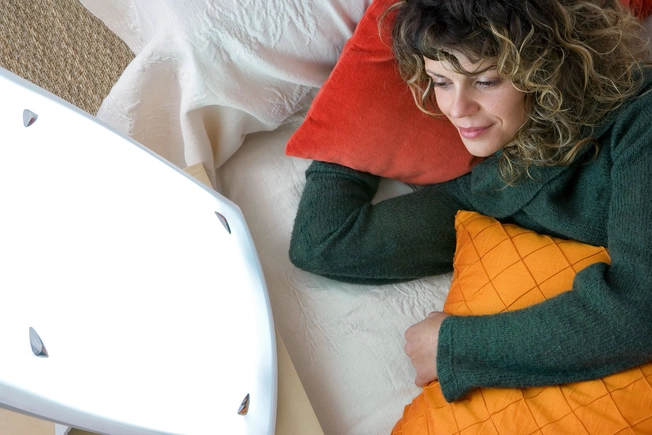
SAD
Seasonal affective disorder (SAD) is a form of depression that happens at the same time every year, usually when there’s less light outside. You can use a sunlamp with bright white light to help with symptoms. The light helps boost melatonin and serotonin, hormones that help with sleep and mood. You don’t need a prescription for a sunlamp. Doctors typically recommend about 30 minutes in front of the light each day.
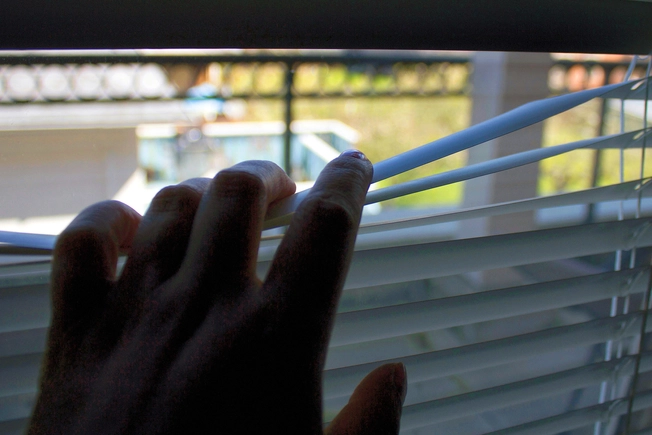
Depression
Bright light therapy can treat non-seasonal depression. The doctor may have you take a medication along with the treatment. A typical session in front of a light box is about 30 minutes a day.
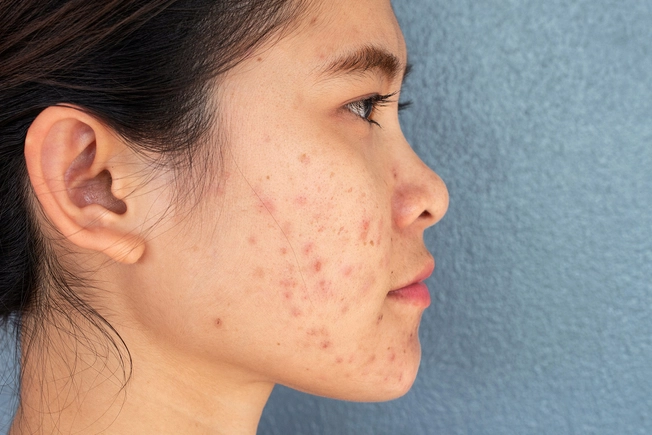
Acne
Dermatologists can treat acne with lasers. They might use blue or red light to kill bacteria and treat pimples, or intense pulsed light (IPL) to help remove oil and dead skin cells from clogged pores and treat blackheads. Light therapy doesn’t work for everyone. You can also use a less powerful red or blue light at home
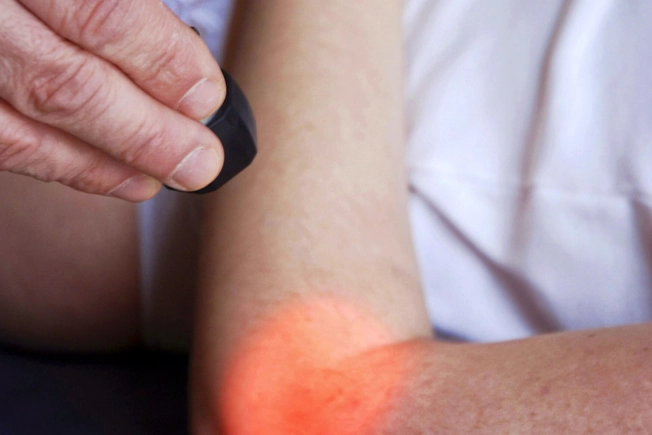
Pain
Red light therapy, a type of treatment that uses low-wavelength red light, can help with pain caused by musculoskeletal disorders. This light can ease back or neck pain, as well as pain from conditions like osteoarthritis, rheumatoid arthritis, carpal tunnel syndrome, and dental problems.

Sleep Disorders
A light box can help reset your sleep/wake cycle. The device mimics outside visible light without using harmful UV light. The doctor can help you decide how long to sit in front of the light box each day.

Dementia
Studies show that having natural, outdoor-like light during the day in rooms of people with dementia can help them sleep better and show less agitation. These results get better over time. Light therapy can also help with depression and slow the effects of dementia.
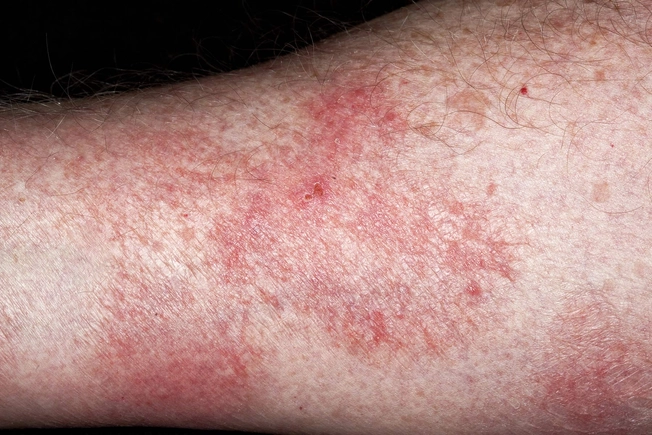
Mycosis Fungoides
This form of T-cell lymphoma can cause rashes and sores. Depending on your stage and how thick your mycosis fungoides is, you may be able to treat it with narrow-band UVB or PUVA phototherapy. This type of treatment is 60%-90% effective in killing cancerous cells.
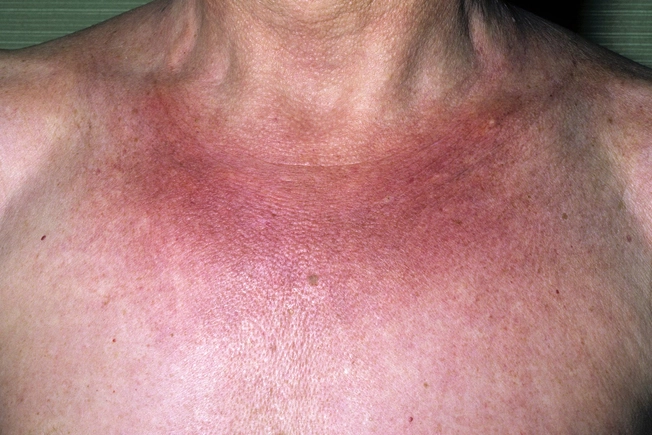
Morphea
Morphea is a skin condition that causes red, white, or hard painless patches on your skin. If you have a serious case that covers much of your body, the doctor might prescribe ultraviolet light to ease your symptoms.
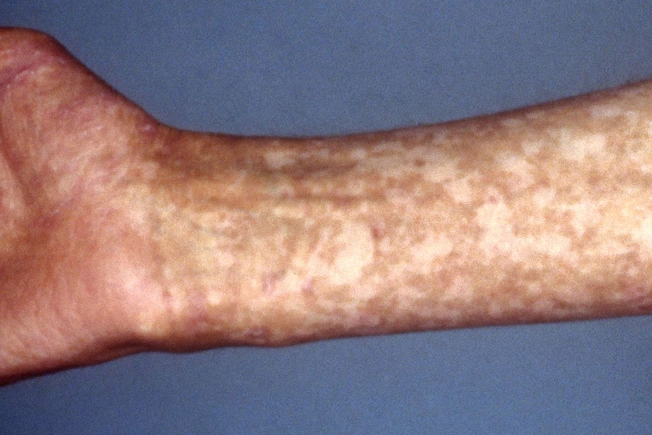
Cutaneous Graft-Versus-Host Disease (cGVHD)
You might get this condition if your body rejects and attacks transplanted cells during a stem cell or bone marrow transplant. Light therapy isn’t usually the first line of treatment. But studies show that PUVA, UVA-1, and UVB can all help treat and bring on remission when cGVHD attacks your skin
IMAGES PROVIDED BY:
1) andreonegin / Getty Images
2) BSIP / Medical Images
3) AndreyPopov / Getty Images
4) B. Boissonnet / Science Source
5) ArianeMeyer / Getty Images
6) Boyloso / Getty Images
7) BSIP / Medical Images
8) sdlgzps / Getty Images
9) Prostock-Studio / Getty Images
10) Dr P. Marazzi / Science Source
11) ISM / CID / Medical Images
12) Clinical Photography, Central Manchester University Hospitals NHS Foundation Trust, UK / Science Source
SOURCES:
UMass Medical School Vitiligo Treatments and Research Center: “Treatments.”
American Academy of Dermatology: “Lasers and Lights: How Well Do They Treat Acne?” “Psoriasis Treatment: Phototherapy,” “Scleroderma: Diagnosis and Treatment,” “Vitiligo: Diagnosis and Treatment.”
Mayo Clinic: “Morphea,” “Seasonal affective disorder (SAD).”
Cleveland Clinic: “Will a SAD Sun Lamp Actually Make You Happy?”
The Journal of Family Practice: “Light therapy for nonseasonal major depressive disorder?”
Seminars in Cutaneous Medicine And Surgery: “Low-level laser (light) therapy (LLLT) in skin: stimulating, healing, restoring.”
Medicine: “Effectiveness of high-intensity laser therapy in the treatment of musculoskeletal disorders.”
MedCrave Online Journal of Orthopedics & Rheumatology: “The Use of Low Level Laser Therapy (LLLT) For Musculoskeletal Pain.”
SleepFoundation.org: “Light Therapy for Insomnia Sufferers.”
Medscape: “Light Therapy Improves Sleep, Cuts Depression in Dementia Patients.”
National Cancer Institute: “Mycosis Fungoides (Including Sézary Syndrome) Treatment (PDQ) -- Patient Version.”
Cutaneous Lymphoma Foundation: “Phototherapy in A Nutshell.”
Leukemia & Lymphoma Society: “Graft-Versus-Host-Disease.”
Cureus: “Evidence-based, Skin-directed Treatments for Cutaneous Chronic Graft-versus-host Disease.”